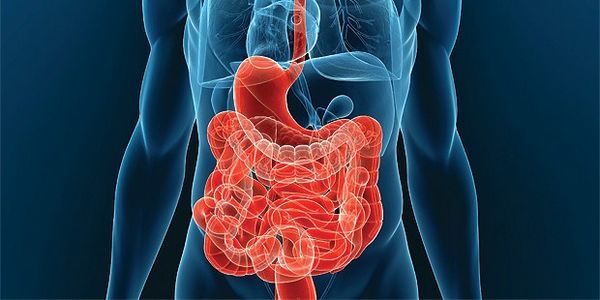Chronic gastritis: what is this, the cause of the, symptoms, diagnostics, treatment, prevention

What is chronic gastritis?
Chronic gastritis is inflammatory disease of the stomach with recrudescent run. Characterized by lesions of gastric mucosa, can be the primary (separate disease) or secondary (due to other diseases).
Chronic gastritis: the cause of the
- Untreated acute gastritis;
- Helicobacter pylori infection;
- Long-term alcohol intake;
- Nonsteroidal anti-inflammatory drugs;
- Radiation, thermal lesions;
- Autoimmune processes;
- Alimentary allergy;
- Throwing of duodenal contents;
- Pernitsioznaya anemia.
Factors, contribute to the development of the disease:
- eating disorders;
- regular alcohol intake;
- chronic drug use, adversely affect the mucous membrane of the stomach;
- smoking;
- chronic inflammatory diseases of the oral cavity;
- metabolic disease;
- renal dysfunction;
- endocrine diseases (thyroid disease, diabetes);
- chronic diseases of the digestive system (cirrhosis of the liver, pancreatitis, hepatitis).
Chronic gastritis: symptoms
Chronic gastritis flows with periods of remission and exacerbations.
Symptoms of an exacerbation of chronic gastritis: belching, pain in the upper abdomen, bad taste in mouth, breath. Symptoms of chronic gastritis varies depending on the secretory activity of the stomach. For gastritis with hyperacidity characterized befor, emerging stihajushhie prandial and after meals, belching acidic contents of the stomach.
For gastritis with low acidity is characterized by belching air, rumbling, abdominal distention, nausea, anorexia, feeling the hardness of the stomach, diarrhea. Pain in the upper abdomen with gastritis with low acidity occurs after eating.
Chronic gastritis: diagnostics
- General blood analysis: anemia, leukocytosis;
- Biochemical blood analysis: inflammatory changes, reduction of total protein;
- Fecal: Perhaps the presence of occult blood, undigested food residues;
- Study of gastric secretion: decrease/increase in pH of gastric juice, determination of content of pepsin;
- Fibrojezofagogastroduodenoskopija (UPPER) with the sighting of a biopsy mucosa;
- Stomach roentgenoscopy;
- Detection of Helicobacter pylori (breathing test, serological diagnosis).
Chronic gastritis: types of disease
Classification of gastritis R. (g). Strickland and J. R. MacKay:
- Type A (autoimmune): is characterized by the presence of antiphospholipid antibodies, high levels of gastrin in the blood plasma, primary defeat of the body of the stomach.
- type in: develops with Helicobacter pylori infection, characterized by reduced or normal level of gastrin in the blood, the lack of immune disorders, affected predominantly antral'nyj Division stomach.
- Type C (himikotoksicheskij): develops due to reflux or duodenogastral'nogo effects on gastric mucosa of chemicals (drugs).
- mixed gastritis (A and B, pangastrit).
Endoscopic categories gastritis:
- flat erosion;
- erymatous/exudative gastritis (superficial gastritis);
- raised erosion;
- hyperplastic gastritis;
- hemorrhagic gastritis;
- reflux gastritis.
On functional grounds:
- With normal secretion;
- with increased secretion;
- secretory insufficiency (moderate or expressed).
Chronic gastritis: patient actions
If you experience symptoms of gastritis should contact a doctor.
Factors should be eliminated, impact triggered the disease, such as alcohol, smoking, poor nutrition. Food should be fractional, regular, Eating 5-7 times a day in small portions, avoid overeating.
Treatment of chronic gastritis
The basis for the treatment of chronic gastritis diet lies.
Typically, patients are treated on an outpatient basis, in case of severe exacerbation, the occurrence of complications hospitalization is required in hospital.
Medicamental therapy depends on the phase of the disease, the type of violations secreting gastric glands.
In the treatment of chronic gastritis following group of drugs:
- Preparations, reduce the secretion of hydrochloric acid-blockers gistaminovykh N2-retseptorov (ranitidine, famotidin), proton pump inhibitors (esomeprazole, omeprazole).
- Antacids (aluminum hydroxide, magnesium hydroxide) appoint for edema heartburn, they are capable to bind hydrochloric acid, reduce the activity of gastric enzymes.
- Gastroprotective agents (bismuth preparations) help protect the stomach lining from the effects of gastric juice, provide astringent, enveloping effect.
- Enzyme preparations (pancreatin) normalize the digestive processes.
- Antispasmodic drugs (drotaverin, papaverine) normalizes irritative, eliminates the spasm.
- Motor Regulators (Domperidone).
- Antibacterial drugs are given when an H infection is detected.. Pylori.
- Preparations, stimulate the secretion of stomach (juice of plantain).
- Iron preparations, vitamin B12, folic acid.
Complications of chronic gastritis
- Bleeding;
- Peptic ulcer disease;
- Adenocarcinoma of the stomach;
- MALT lymphoma;
- B₁₂-deficiency anemia.
Chronic gastritis: prevention
Active lifestyle, rational nutrition, renunciation of bad habits, rehabilitation of chronic hotbeds of infection (chronic tonsillitis, caries), timely and adequate treatment of diseases of the digestive system.
